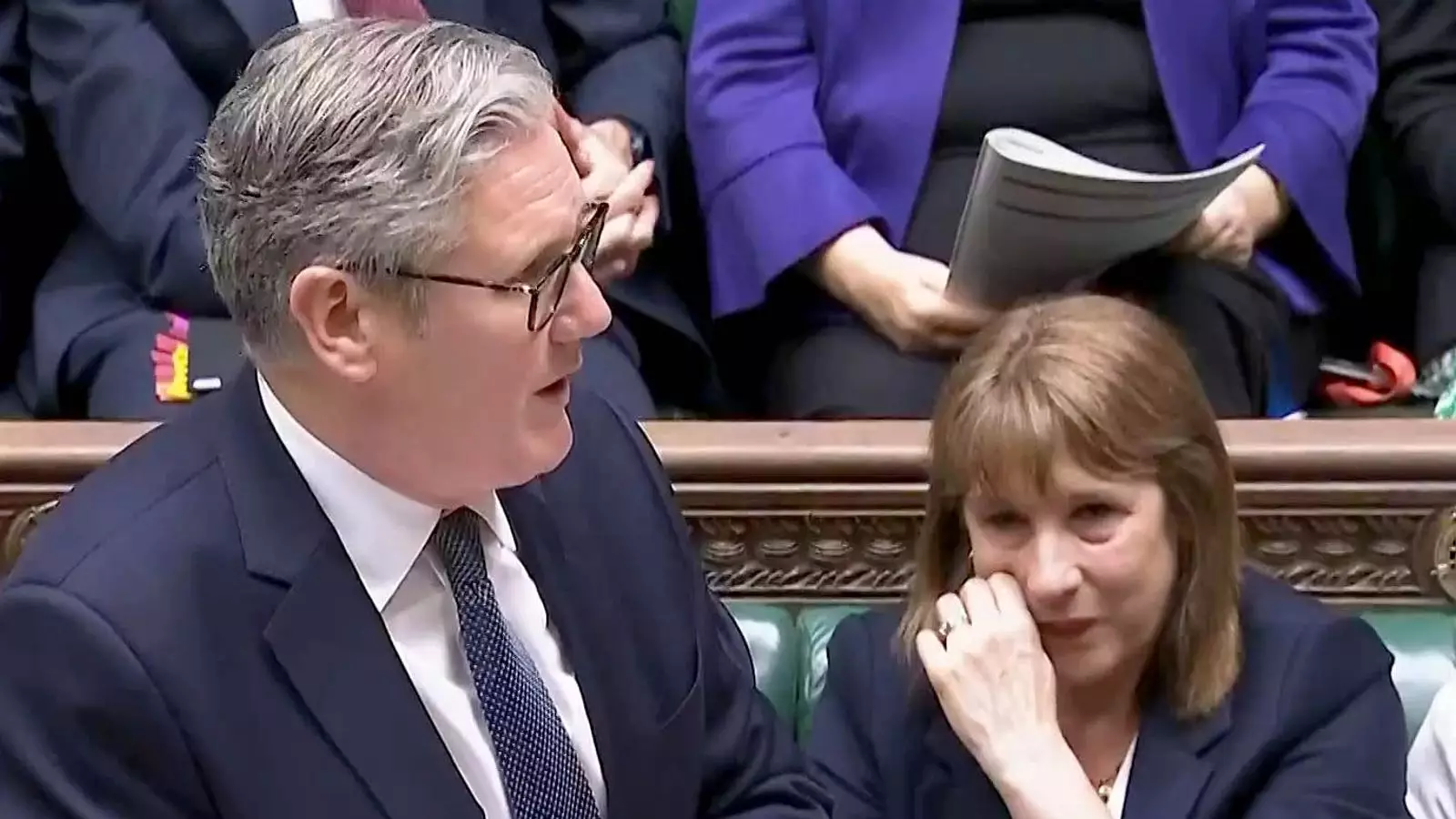In recent weeks, the British political landscape has been shaken by signs of profound instability. Rumors of the Prime Minister’s potential departure within months have circulated ominously, driven by declining public trust and internal dissatisfaction. These whispers are not mere gossip but reflect a deeper crisis: a government perceived as underperforming and disconnected from the needs of its citizens. Such instability not only hampers effective governance but also threatens the very foundations of democratic accountability. When leadership becomes a revolving door, the confidence of the electorate erodes, fostering cynicism and disengagement. It’s time to critically assess how political fatigue and internal discord threaten to derail the UK’s future trajectory, especially at a moment when stable, compassionate leadership is needed more than ever.
Internal Discord and the Erosion of Public Trust
The signals from within the corridors of power suggest a government teetering on the brink of collapse. Senior MPs expressing concern about the PM’s longevity reveal an internal party grappling with disillusionment and disarray. Such candid admissions mark a departure from traditional political decorum and underscore the perilous state of cohesion. Concurrently, opposition parties like Reform UK are gaining ground amid voter dissatisfaction, while left-wing voices in London, such as the Greens, challenge Labour’s dominance. This fracturing spell out an urgent call for introspection — is the leadership capable of uniting a fractured nation, or are we witnessing the beginning of a broader decline? The danger is reflexive: when political elites underperform, public faith diminishes, often favoring populist and marginal parties as a form of protest, further destabilizing the political equilibrium.
Leadership Under Pressure: The Challenges Facing Keir Starmer and Rishi Sunak
Across the political spectrum, leaders are under intense scrutiny. For Rishi Sunak, the incoming storm of financial turmoil, exemplified by a damaging welfare U-turn, reveals the vulnerability of even strong-handed leadership. The controversy surrounding the Chancellor, Rachel Reeves, underscores how personal struggles and political adversity are becoming intertwined, fueling speculation about stability from within his ranks. Despite reassurances, the market’s volatile reactions reflect deep-seated concerns about economic management and competence. Similarly, Labour’s leader Keir Starmer faces a testing electoral landscape, with political analysts questioning whether Labour can capitalize on this turmoil to secure victory. The internal dissent and external challenges highlight a fundamental truth: leadership today must go beyond mere rhetoric. It demands resilience, clarity, and an authentic connection with an electorate increasingly wary of political elite complacency.
The Personal and Political Crossroads: A Leadership in Flux
The emotional display by Rachel Reeves in Parliament was more than a personal moment; it was a mirror reflecting the immense pressures faced by those at the helm. While the Prime Minister emphasized her privacy, the incident also exposes the toll that governing in a time of crisis takes on individuals. The credibility of political figures hinges on appearances of composure and steadiness; deviation from this can have ripple effects, destabilizing markets and eroding voter confidence. It is a stark reminder that leadership is not just about policy but also about managing human vulnerability. The conviction expressed by Sunak that Reeves will remain in office suggests an attempt to project stability, but questions linger about whether such assurances are enough. When political leaders appear emotionally drained, it sends a signal to citizens that the system is strained to its breaking point—an uncomfortable reality that demands acknowledgment and genuine leadership response.
The Broader Implications for Democratic Health
This series of internal crises and strategic missteps illuminates a larger challenge: how democratic institutions and political parties can regain trust in times of turmoil. When governments falter, it triggers a cycle of skepticism and disengagement. The current climate calls for renewed transparency, genuine accountability, and a commitment to addressing the root causes of disillusionment. In a democracy, leadership must reflect the values of resilience and compassion, particularly when tackling complex issues such as economic instability and social inequality. Without a reevaluation of priorities and a recommitment to serving the public interest, the UK risks descending into entrenched cynicism—an outcome that benefits neither the populace nor the health of its democratic processes. The path forward demands a courageous reassessment of leadership styles and political culture rooted in integrity, empathy, and real accountability.


Leave a Reply